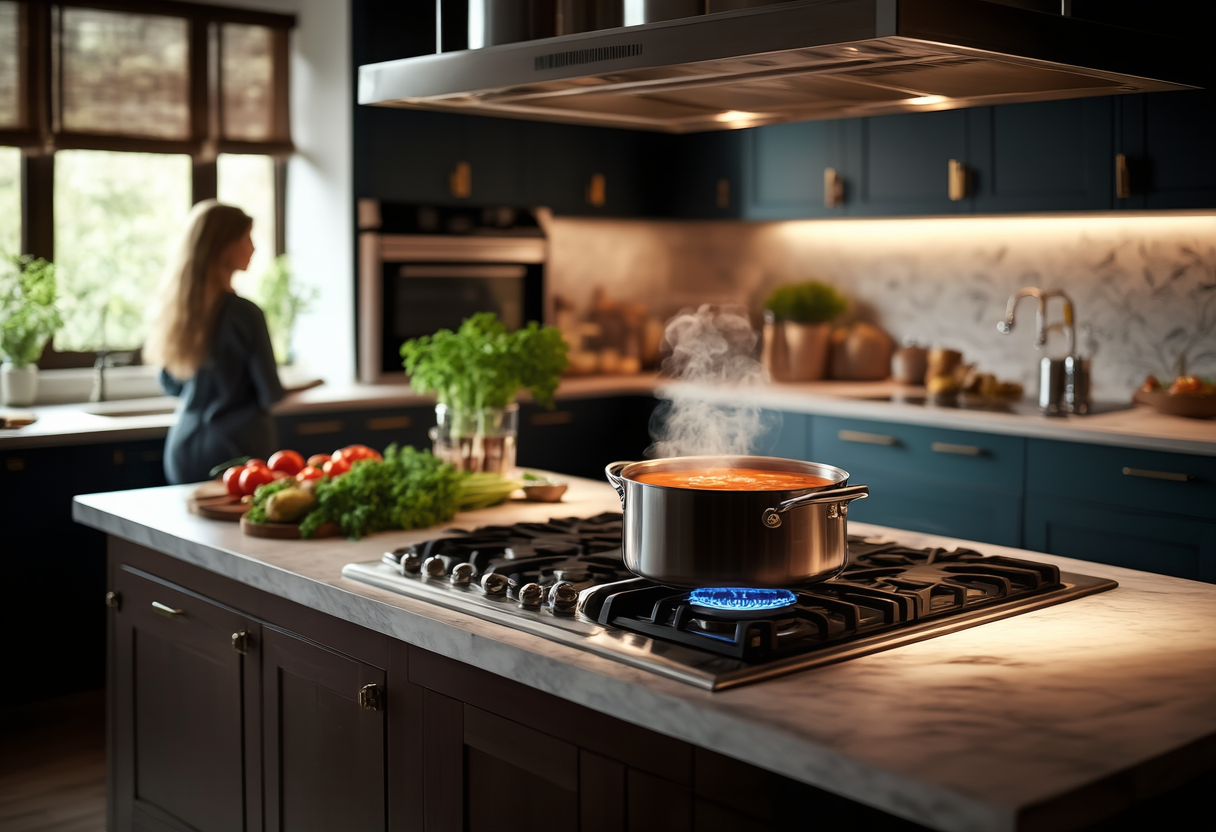The Safety and Efficiency Debate: Gas Stoves Under Scrutiny
As gas stoves come under increasing scrutiny for their safety and environmental impact, it’s essential to navigate the complexities surrounding their use. This article examines the growing concerns over gas stoves, the advantages they offer in terms of cooking efficiency, and the ongoing debates regarding their health implications. With rising awareness, we explore how trends are shaping public perception and influencing policies on gas stoves. Ultimately, the dialogue surrounding these cooking appliances is crucial for consumers, manufacturers, and policymakers alike.
The Controversy of Gas Stoves Safety
In recent times, gas stoves have been at the center of a heated debate concerning their safety. Concerns about indoor air pollution linked to gas stoves have prompted health officials to question their widespread use. Research indicates that gas stoves can emit nitrogen dioxide and other harmful pollutants, which can exacerbate respiratory issues, especially in children. This realization has prompted many to reconsider their preferences and methods in cooking. Despite their efficiency and ability to provide heat almost instantaneously, the argument grows stronger for finding safer alternatives to gas stoves. In light of these findings, it's crucial for homeowners to weigh the benefits of gas stoves against potential health risks. Moreover, the discussion extends into environmental considerations, as natural gas extraction and consumption contribute to a larger carbon footprint. Therefore, addressing these health and environmental concerns in relation to gas stoves is becoming an urgent priority.
Benefits of Cooking with Gas Stoves
On the other side of the debate, gas stoves offer numerous benefits that make them a popular choice among chefs and home cooks alike. One of the most significant advantages is their ability to provide immediate and precise heat control, allowing for better temperature management when cooking. Gas stoves can reach high temperatures quickly, essential for various cooking techniques such as searing or stir-frying. Additionally, gas stoves are typically more cost-effective than electric alternatives over time, given the lower price of natural gas in many regions. Many culinary experts advocate for the use of gas stoves, citing that the experience of cooking over a flame provides unmatched flavor and quality. Consequently, this has led to an enduring popularity of gas stoves in the culinary world. Consumers must consider these advantages when questioning their stove's safety and efficiency. Yet, as preferences evolve, the rise of electric and induction cooktops is beginning to shape a new culinary landscape.
Societal Perception and Trends
The societal perception of gas stoves is nuanced and evolving. With increasing awareness of air quality and health implications, more consumers are questioning their reliance on gas stoves. This shift has also been fueled by advocacy groups pushing for restrictions on natural gas appliances due to their impact on the environment. The growth of the green movement emphasizes sustainable practices and the urgent need to reduce harmful emissions from gas stoves. Interestingly, manufacturers are taking note of this trend, investing in electric and induction technologies that promise to deliver a similar cooking experience without the health risks associated with gas stoves. As public opinion increasingly leans towards sustainability, it will be fascinating to observe how kitchen appliance industries adapt to these changing trends. Consumers may soon find themselves in a world where gas stoves are no longer standard kitchen fixtures, challenged by innovations in energy-efficient cooking methods.
Regulatory Response to Gas Stoves
The regulatory landscape surrounding gas stoves is undergoing significant changes as municipalities and countries adopt stricter environmental policies. In light of health concerns linked to gas stoves, several cities have proposed or implemented bans on natural gas installations in new residential developments. These regulatory measures highlight the increasing recognition of the harmful pollutants emitted by gas appliances. While proponents argue that such actions are necessary for public health, opponents express concerns over the feasibility and economic implications of immediate transitions away from gas stoves. The continued enthusiasm for gas stoves often clashes with growing demands for cleaner alternatives. As debates unfold, it's crucial for home chefs and consumers to stay informed about local regulations regarding gas stoves and to understand how such policies impact their culinary routines. Navigating these complex changes will require cooperation among consumers, manufacturers, and policymakers to create sustainable solutions.
Innovative Alternatives to Gas Stoves
As we seek alternatives to gas stoves, induction cooktops stand out as an appealing option. Induction stoves use electromagnetic energy to heat cookware directly, offering significant advantages such as faster cooking times and increased energy efficiency. Moreover, induction cooktops boast precise temperature control akin to their gas counterparts, attracting health-conscious consumers and eco-friendly advocates. Additionally, electric stoves have come a long way, with modern designs offering highly efficient and versatile cooking experiences. While they may not provide the same flame cooking aesthetic, they present unique benefits worth considering. Nevertheless, adapting to these newer technologies may come with a learning curve for traditional gas stove users. Exploring the features of different cooking appliances can help consumers make informed decisions about transitioning from gas stoves.
Final Thoughts on Gas Stoves
In conclusion, the discussion surrounding gas stoves encompasses a range of safety, efficiency, and environmental concerns. As the trends point towards sustainability, it becomes evident that consumers must navigate this dynamic landscape carefully. While gas stoves continue to be a widely favored choice for their cooking performance, the health implications cannot be overlooked. Balancing these factors will undoubtedly shape the future of cooking in both residential and commercial kitchens. It’s essential for consumers to stay informed and understand their options regarding gas stoves, electric alternatives, and induction technologies. Ultimately, the debate surrounding gas stoves reflects broader societal discussions about health, safety, and environmental responsibility. As stakeholders in this conversation, it lies within our collective responsibility to ensure that the kitchen remains a safe space for all.
